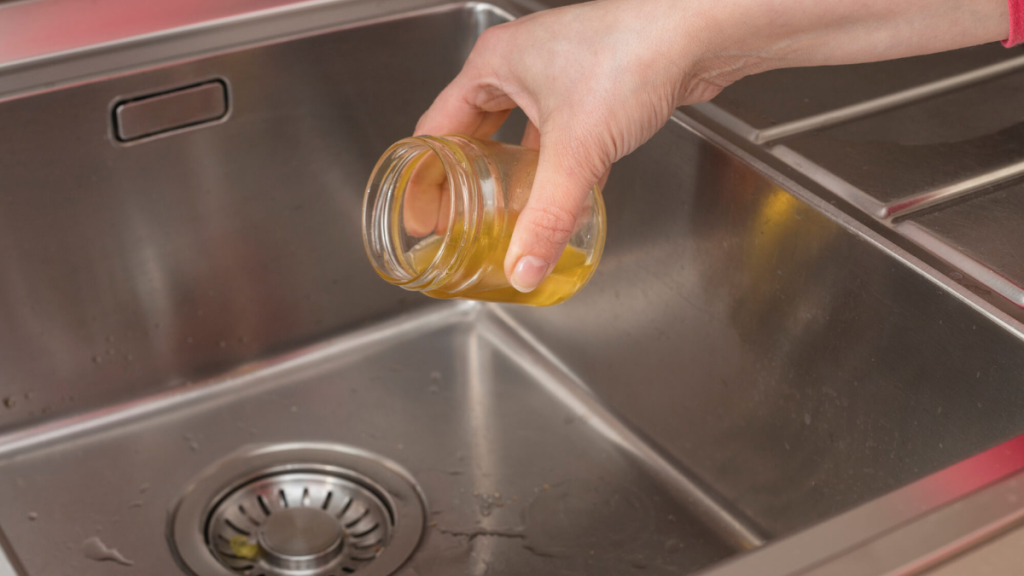It’s easy to pour leftover oil down the drain and forget about it—until it clogs your pipes, damages city infrastructure, and invites rats to your neighborhood. Whether you’re running a small kitchen, a big restaurant, or just cooking dinner for one, disposing of used cooking oil in Los Angeles isn’t as simple as tossing it in the trash. The city has specific rules for handling oil, and ignoring them could cost you. Here, we break down four things you need to know, from smart kitchen practices to official drop-off locations.
Your Restaurant and Recipe Management
Let’s take a step back for a second. If you own or operate a food business in Los Angeles, the volume of cooking oil you’re using is probably directly connected to how well your kitchen is managed. And that includes your recipes. Systems that streamline ingredients, portions, and inventory can have a surprising side effect: reducing waste, including excess oil. Investing in proper recipe management tools doesn’t just help you serve consistent dishes. It can also help cut down on the gallons of oil you need to store, use, and eventually dispose of.
Efficient kitchens that track their recipes can predict exactly how much oil a dish needs—nothing more, nothing less. That translates to fewer headaches when it’s time to get rid of what’s left. So before you even start researching where to take your used oil, make sure you’re not using more than you need in the first place. Improving kitchen organization can save you money and make disposal safer and simpler.
Where Should You Actually Take Your Oil in LA?
Here’s the core of the issue: used cooking oil is classified as a type of waste that needs proper handling. Pouring it down the sink, flushing it, or tossing it in the garbage isn’t just messy—it’s illegal. The good news? The city has designated drop-off sites and partnerships with recycling programs to handle exactly this kind of material. For convenient cooking oil disposal in Los Angeles, you’ll find a few local hubs that accept residential and commercial volumes of used oil, especially around major holidays when frying activity spikes.
This isn’t just about avoiding fines. Proper disposal helps prevent sewer clogs and reduces fire hazards from improperly stored oil. Many of the drop-off locations will take both animal fats and plant-based oils, as long as they’re cooled and stored in a sealed, non-glass container. Even better, some programs turn your old oil into biodiesel—a cleaner alternative fuel. That means your leftover frying oil might power a bus one day instead of sitting in a landfill or damaging the water system.
Understanding City Regulations on Grease and Wastewater
Los Angeles has made it very clear: improper disposal of grease and oil is a violation of municipal code. Whether you’re a business or a homeowner, getting caught dumping oil down the drain can lead to fines, liability for damage, or even loss of your health permit if you’re running a kitchen. The city’s Bureau of Sanitation regularly inspects commercial kitchens and encourages residents to take responsibility for household waste.
Oil that’s dumped down the drain doesn’t just disappear. It hardens inside sewer lines, mixes with other debris, and creates fatbergs—massive, solid clogs that require heavy machinery to remove. This kind of waste backs up sewer systems and costs the city millions to clean each year. That’s why Los Angeles mandates that restaurants install and maintain grease interceptors and that they use approved haulers for large-scale removal.
At home, it’s less technical but still important. You’re expected to store used oil in a properly sealed container and take it to a designated drop-off site.
Can you Reuse Cooking Oil Before You Toss It?
Before you rush to dispose of your oil, it’s worth asking whether you can get one more use out of it. Many types of cooking oil can be filtered and reused—especially if you’ve only used it to fry once or twice and haven’t overheated it. This isn’t just practical; it’s economical, and it reduces waste. The key is to strain the oil thoroughly and store it in a cool, dark place. Reuse should always be based on smell, clarity, and taste—once it starts to break down, throw it out properly.
In commercial kitchens, oil reuse is often part of a broader strategy to reduce costs. But it needs to be handled carefully, especially under food safety regulations. For home cooks, reusing oil for similar types of dishes (like frying potatoes or breaded items) can work well. Just avoid mixing oils or using previously used oil for high-heat applications once it has degraded.

